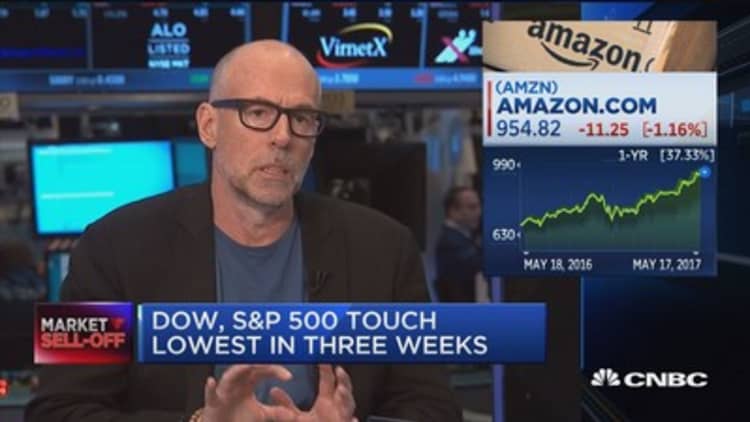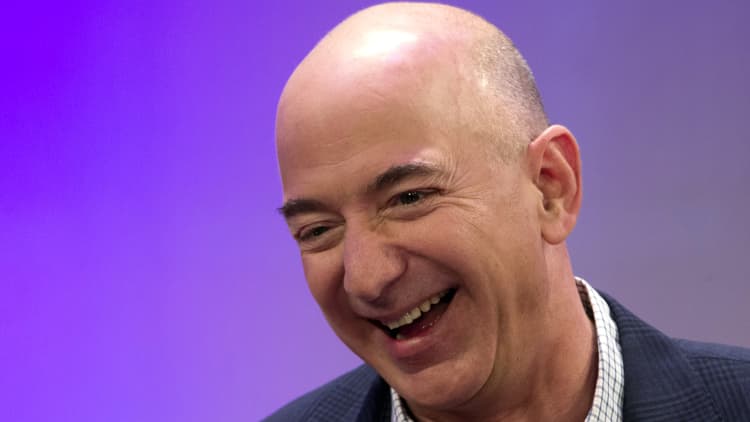Amazon is positioning itself to be the dominant retailer of the future with its $13.7 billion acquisition of Whole Foods. The deal isn't just about groceries.
CNBC reported last month that Amazon is hiring a team to break into the $400 billion pharmacy market. Buying up Whole Foods and its more than 450 retail locations could help Amazon in the hyper-competitive prescription drug industry.
"The acquisition of Whole Foods makes entry into pharmacy much easier for Amazon," said Stephen Buck, who co-founded GoodRx, a company that offers discount coupons on prescription drugs, and is now an entrepreneur in residence at venture firm Canaan Partners. "Amazon could use this retail footprint for consumers to pick up prescriptions."

Morgan Stanley analysts wrote in a report on Friday that Whole Foods "creates an entry point to drug delivery" and provides the necessary real estate. Pharmacy stocks CVS and Walgreens each fell at least 4 percent on Friday.
Amazon is looking to hire a general manager for its pharmacy business and is mulling the right approach to cracking the complex and regulated market. It recently started selling prescription drugs on its Japanese site, a possible indicator of its broader ambitions.
There are challenges specific to selling pharmaceuticals in physical stores.
Amazon would have to deal with complicated third-party payer networks like health insurers, said Adam Fein, president of Pembroke Consulting. And there are already 65,000 pharmacy locations in the U.S., which are all competing to lower their prices.
"The generic drug market isn't all that profitable," he said.
That said, Fein wouldn't be surprised if Amazon made the leap. The company has "a legacy of a lot of experimentation and testing," he said.
Whole Foods chairwoman Gabrielle Sulzberger is also on the board of Israeli drug maker Teva Pharmaceuticals, which specializes in generics. It's unclear whether Sulzberger will play a role in the company's future.
Fein said that Amazon could eventually do well by targeting consumers willing to pay cash for generic drugs through discount coupons, either because they don't have insurance or could access a cheaper price that way.

A strategic acquisition of a company like GoodRx is also a possibility, he said.
Marketing presents another hurdle.
Whole Foods has tended to stay away from prescription drugs, which are viewed as treating the sick, in favor of selling organic cosmetics and wellness supplements.
"It's a potential brand problem," said TJ Parker, chief executive of pharmacy start-up PillPack. "But it might also be a way to reframe the conversations about meds."
Still, Whole Foods isn't likely to open pharmacies anytime soon as it deals with the logistics of such a large acquisition.
"I don't think it says anything about pharmacy in the next few years," Fein said.


